1.3 «You are all we have, you are our whole world»
In this 3 chapter, we read a letter from Raskolnikov's mother, and learn about what was happening with her and his sister, Dunya. And we see the reaction to her engagement with Luzhin.
So, we have already reached the third chapter. In it, Raskolnikov is finally in his room. And we see the conditions in which he lives.
He looked with loathing around his little room. It was a tiny cell about six paces long, and its dusty yellow wallpaper, peeling off the walls, gave it an abject appearance. It was so low that even a moderately tall person would have been uncomfortable, constantly feeling in danger of knocking his head against the ceiling. The furniture was no better than the room—there were three old chairs, in poor repair, and a painted table in the corner with a number of books and notebooks on it.
In such a room the size of a closet, without its own bathroom and kitchen, it is impossible to have any privacy. Nastasya (the maid who brings food and cleans the room) comes in nonchalantly without even knocking. Such an environment causes constant tension and is detrimental to one’s mental state.
I want to show “Raskolnikov’s room” at one of the exhibitions — this box-cube was exactly the size of his room.
The name
From the mother's letter, we learn that our protagonist’s name is Rodion. And even that is still in doubt, as she addresses him with a diminutive form of the name — Rodya. In Russian, this can be a short form of the word "родной / rodnoy" (meaning "dear"). This is important because for his family — he is the dearest, he is their hope and their whole world, despite the thoughts in his head. Here, we can also reflect on whether the attitude of loved ones towards a person changes if he is a criminal. Especially a mother's attitude towards her child. So far, Raskolnikov has not done anything bad. And in their minds, he is their support and hope, even though at this point in the book — it is they who take care of him, doing everything to send him money while he roams the city. But men in those times had more opportunities, so they regard him as their hope for the future.
For now, we see strong-spirited women: it is Sonya in the Marmeladov family who does everything to save the family and earn money. Likewise, in the Raskolnikov family — it is the mother and sister Dunya who provide for Rodion.
The name Rodion Raskolnikov is a contradiction. His name can be interpreted as "dear, the closest," while his surname means "split, discord." The entire character is based on a conflict within himself.
Turtle in a Shell
Most likely, few have paid attention to the metaphor of the turtle/tortoise. However, it is very important in Dostoevsky's works. The writer used it to characterize a type of Dreamer and the underground man.
Dostoevsky's Dreamer is not a romantic type, but a deeply reflective and therefore suffering one. Secluded in his shell, he is bound by those deep reflections that never lead to action, dreams that never come into effect. Raskolnikov is such a Dreamer. The motif of the broken shell accompanies Raskolnikov's entire journey in the novel.
A long letter of the mother
First, a few words on the characters.
Raskolnikov's mother — Pulkheria. A very old Russian name, no one is named like that in Russia anymore. I don't even know how to make a diminutive form of it.
Dunya, is a diminutive name from Avdotya. Also an old Russian name. Raskolnikov's younger sister.
We also need to remember two characters:
Arkady Svidrigailov — he harassed Dunya.
Pyotr Luzhin — Dunya's fiancé.
The mother wrote a long letter. For a letter on two sheets, she must have very small handwriting.
An interesting fact is that the mother signs the letter with her first and last name, instead of writing, for example, "your mom".
I wonder why that is? What do you think?
In the letter, Pulkheria recounts what has happened to them over the past few months. She writes about how Svidrigailov disgraced Dunya by making advances toward her. The reaction from people was swift—they immediately began to despise her. They even wanted to tar the gates of their house, a folk custom to indicate that a girl of 'ill repute lives there. A girl with tarred gates would not be able to marry, the folks say.
Everything could have ended sadly and unjustly, but Svidrigailov's wife found out the truth and told the neighbors. Everything changed quickly—suddenly, Dunya was being praised. At this point, Luzhin appeared to propose to Dunya.
It is still difficult to say what his intentions are. Did he like Dunya precisely because of the aura of universal recognition of her virtue? But in any case, Dunya is a young, intelligent, and kind girl.
It is believed that Dostoevsky captured one of his creditors, whom he hated, of course, in the image of Luzhin. A writ of inventory of the writer's property for non-payment to a certain Lyzhin — 450 rubles — has been preserved in archives. He changed one letter in the surname. But the first name was also Piotr.
Even from the mother's descriptions, Rodya immediately disliked this suitor. He considered him a calculating, scheming man. Why did he have such a reaction? I can conclude that Raskolnikov truly and deeply loved his sister, but once again there’s this contradiction—Rodya who feels the love and unity with his family, and Raskolnikov plotting a crime.
From the letter, we also understand that the mother and sister are coming to him. And that soon there will be a wedding between Dunya and Luzhin. They want to hold it before the next fast. And it will begin on August 1st (the Assumption fast).
The previous fast ended on June 29th. Today on Raskolnikov's calendar is July 8th. Not much time is left. An interesting detail is that all the action of the novel will take place between the fasts, in the so-called "meat-eating" period. The fast is the period of repentance, of preparing your soul for cleansing. But this is not such a time.
After reading the letter, Rodion with tears in his eyes practically runs out of his cramped little room and goes for a walk around the city.
We will trace his path in the discussion of the next chapter. But for now, we leave him being "not himself," and mistaken for a drunk. We leave him on Voznesensky Prospekt, as he moves towards Vasilevsky Island. Here you can see the view of that part of the city.
The next chapter has 11 book pages.





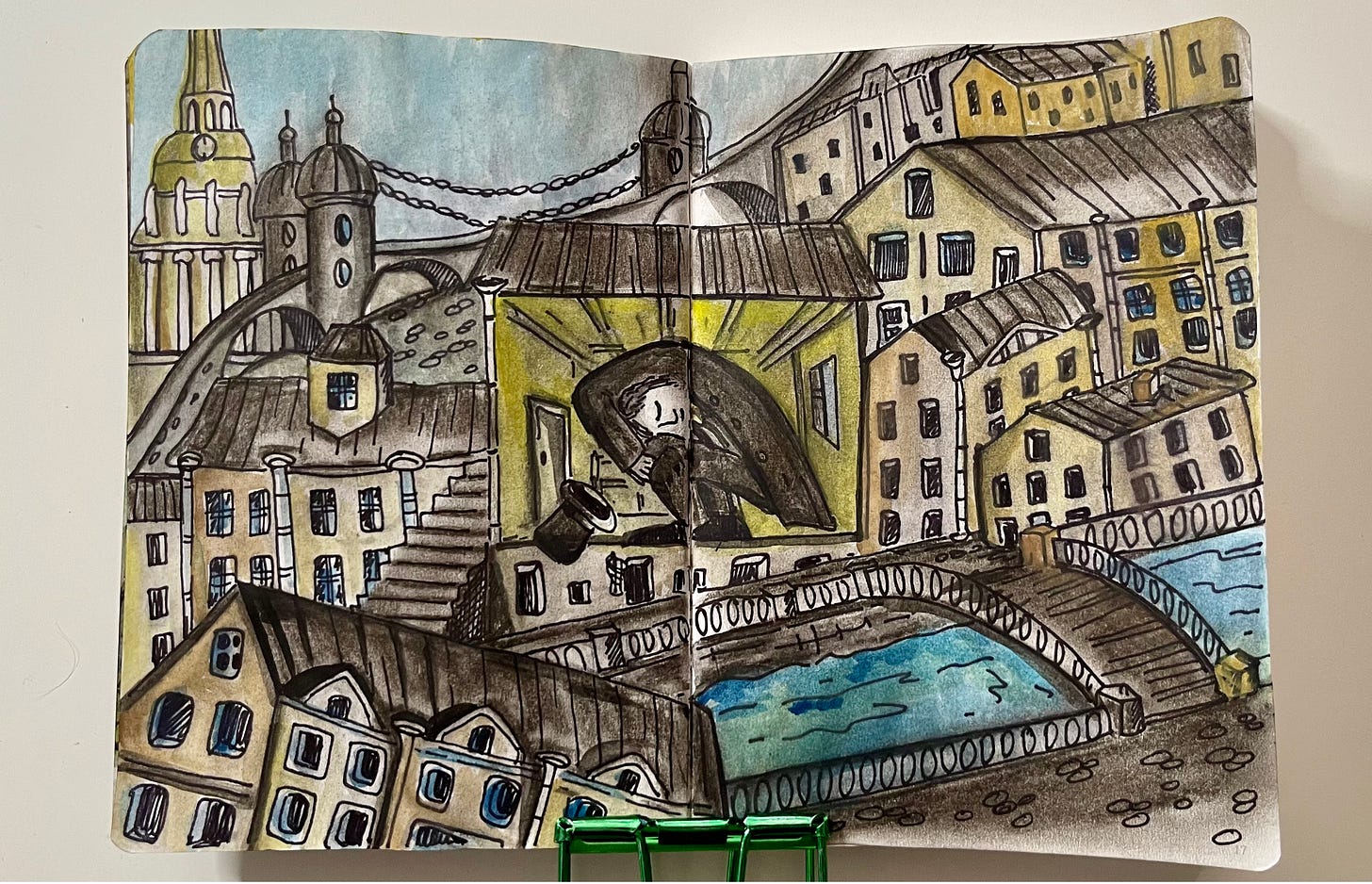
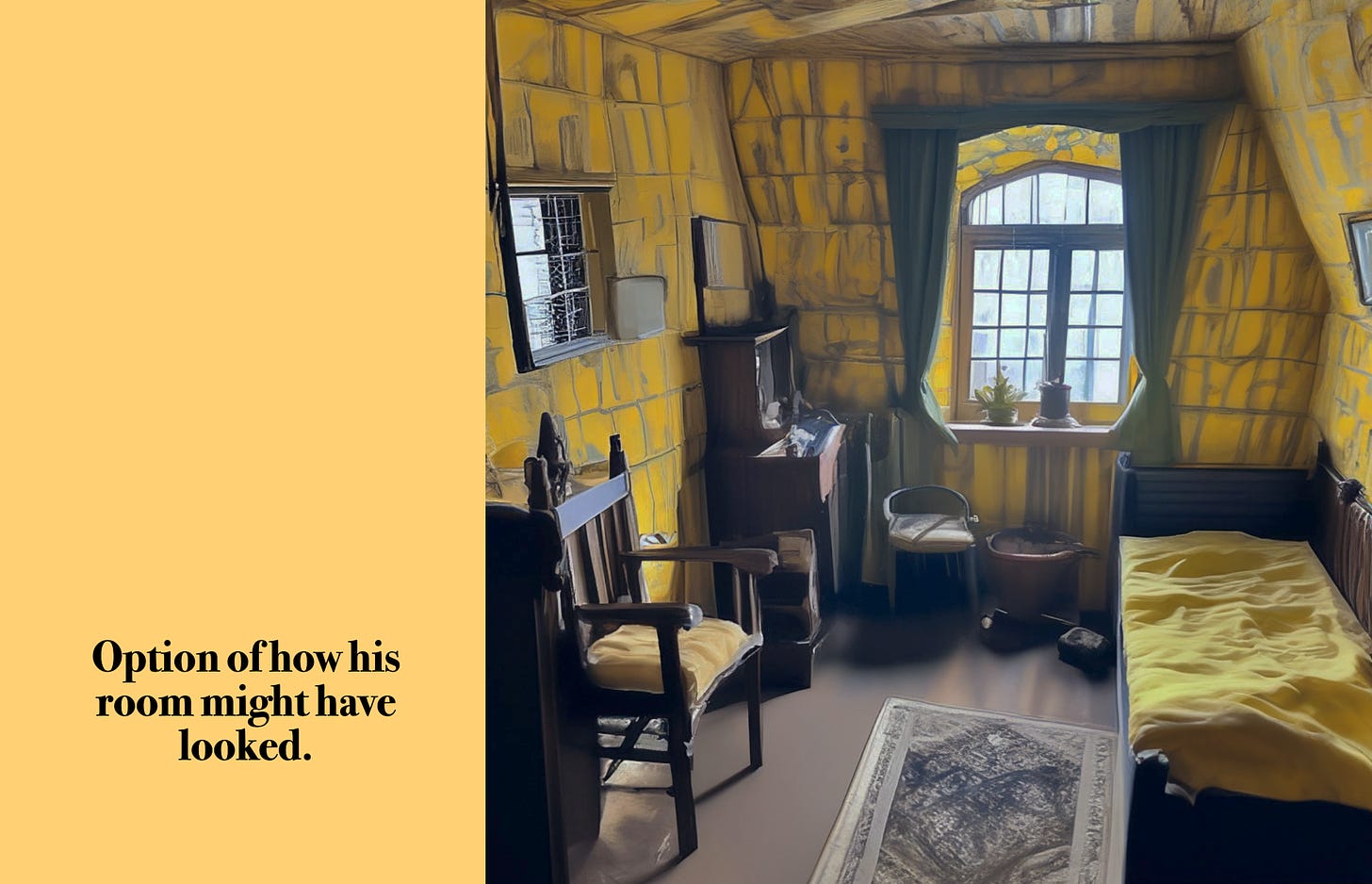
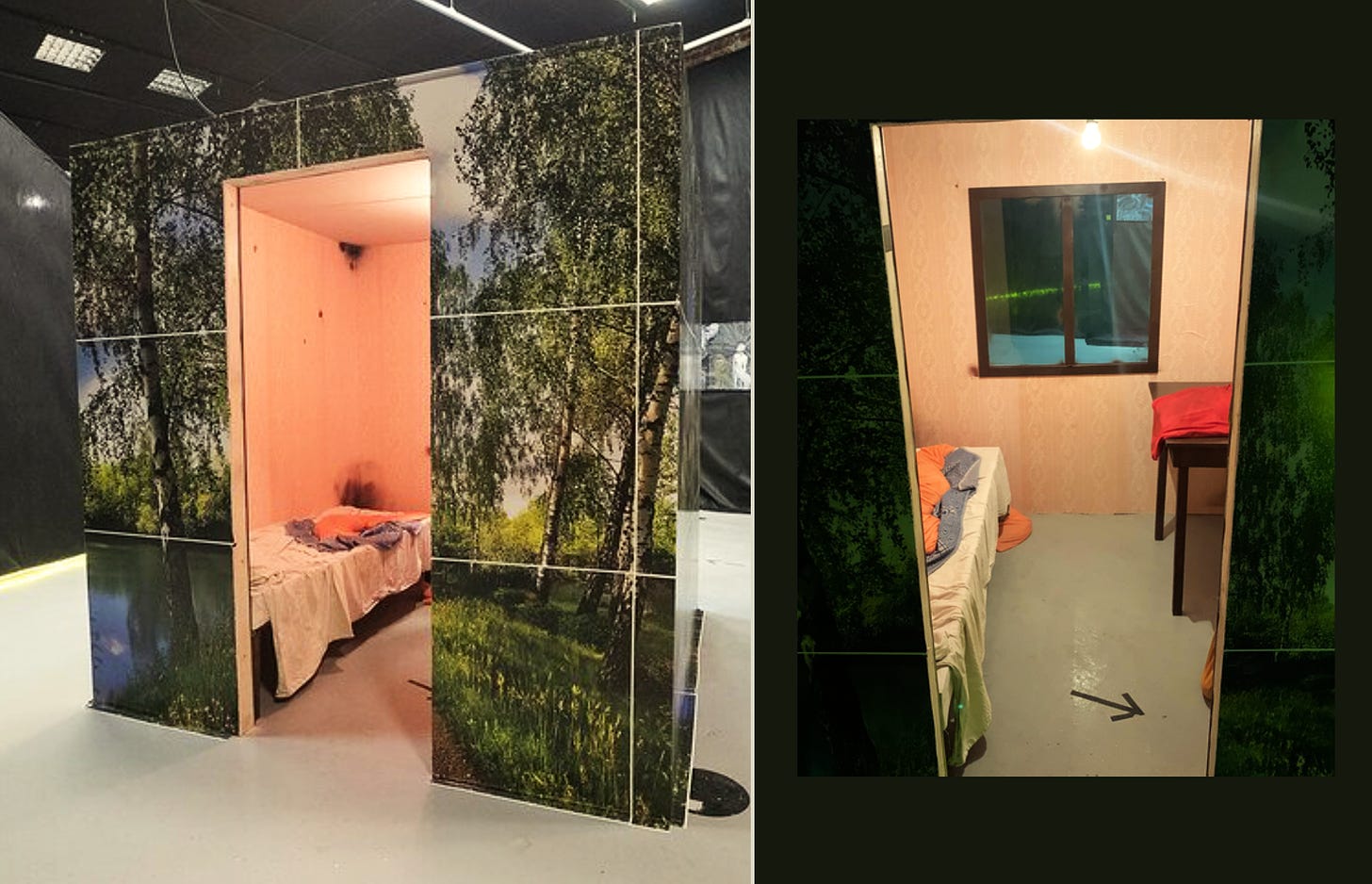
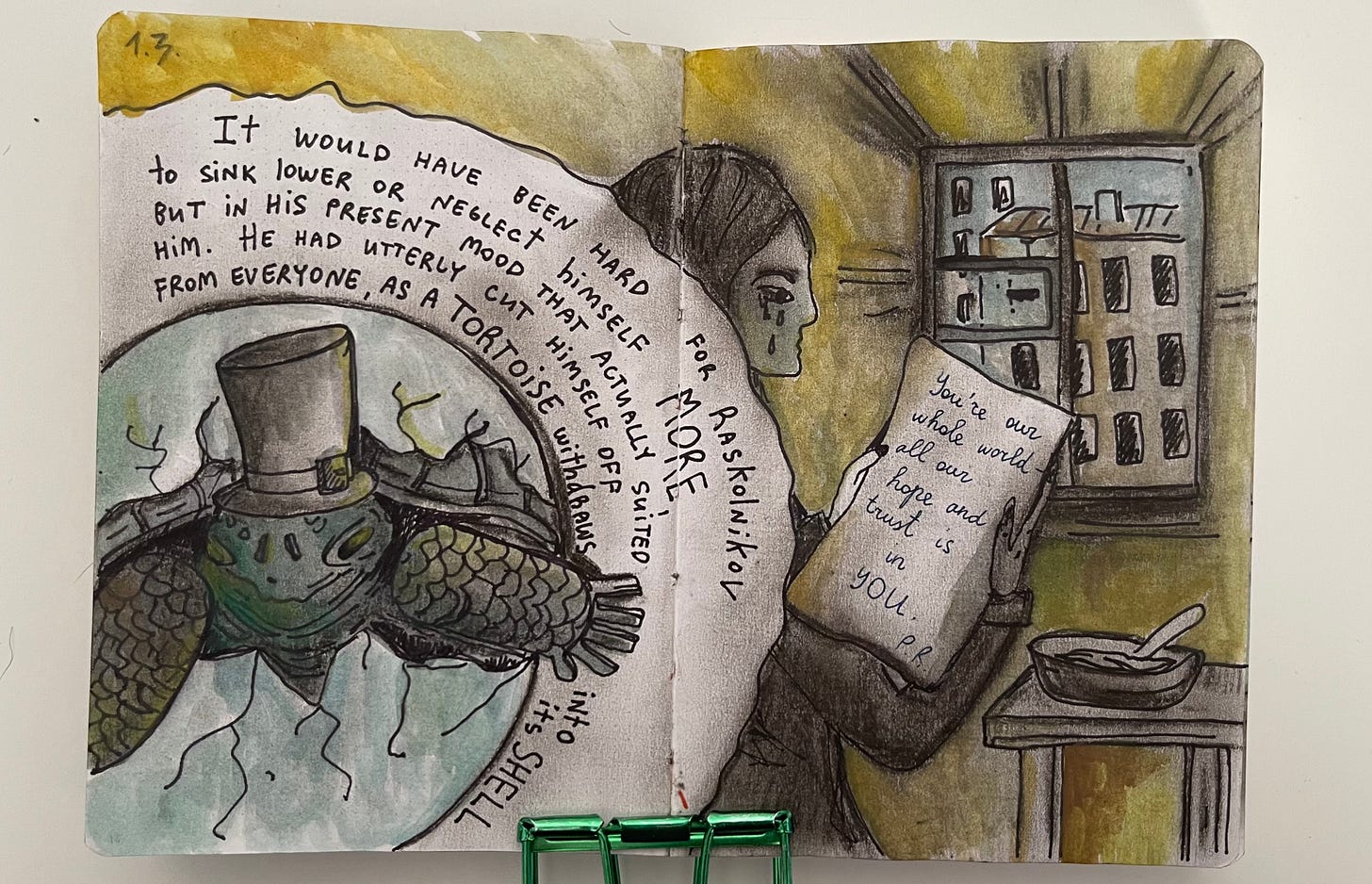

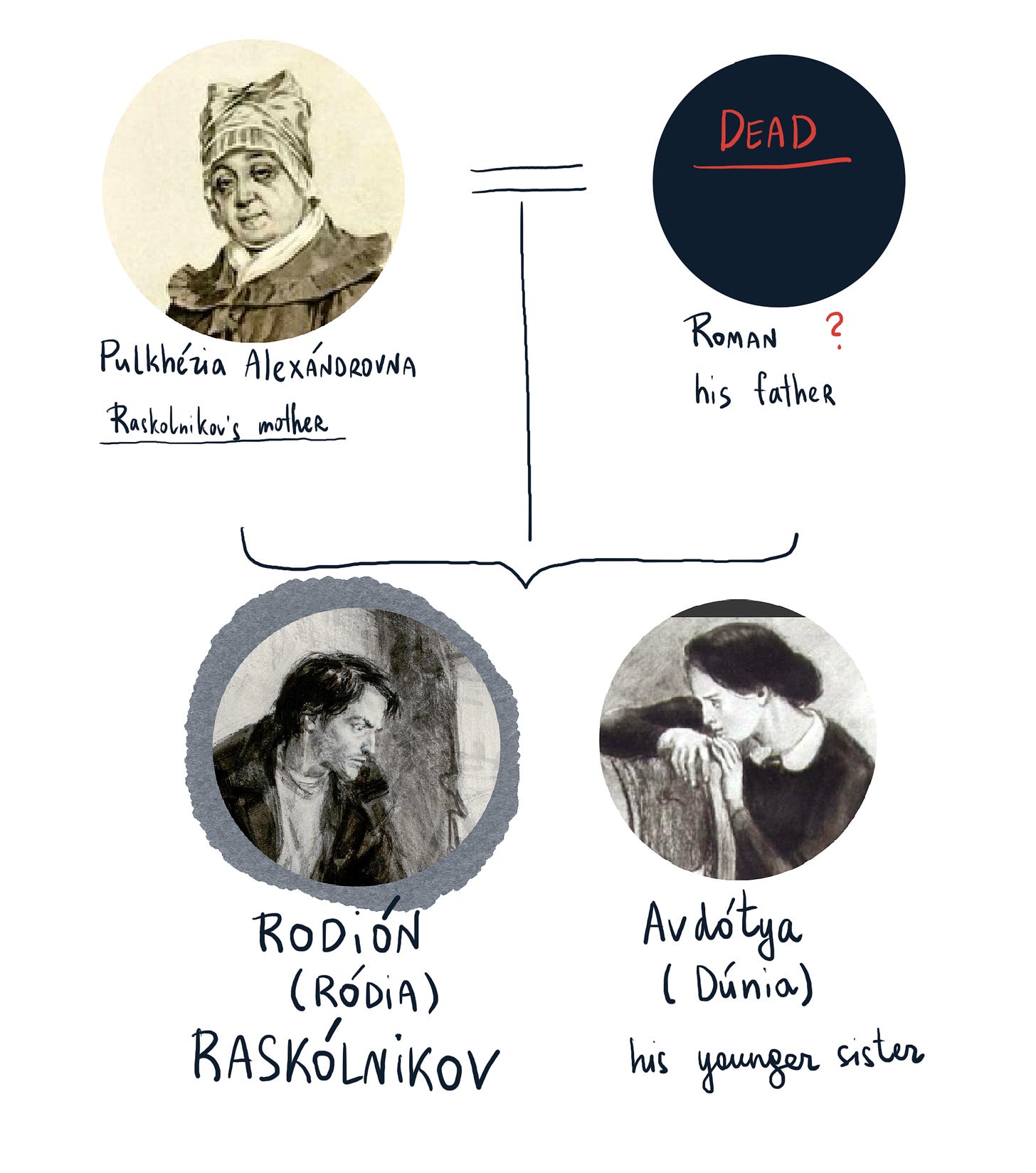
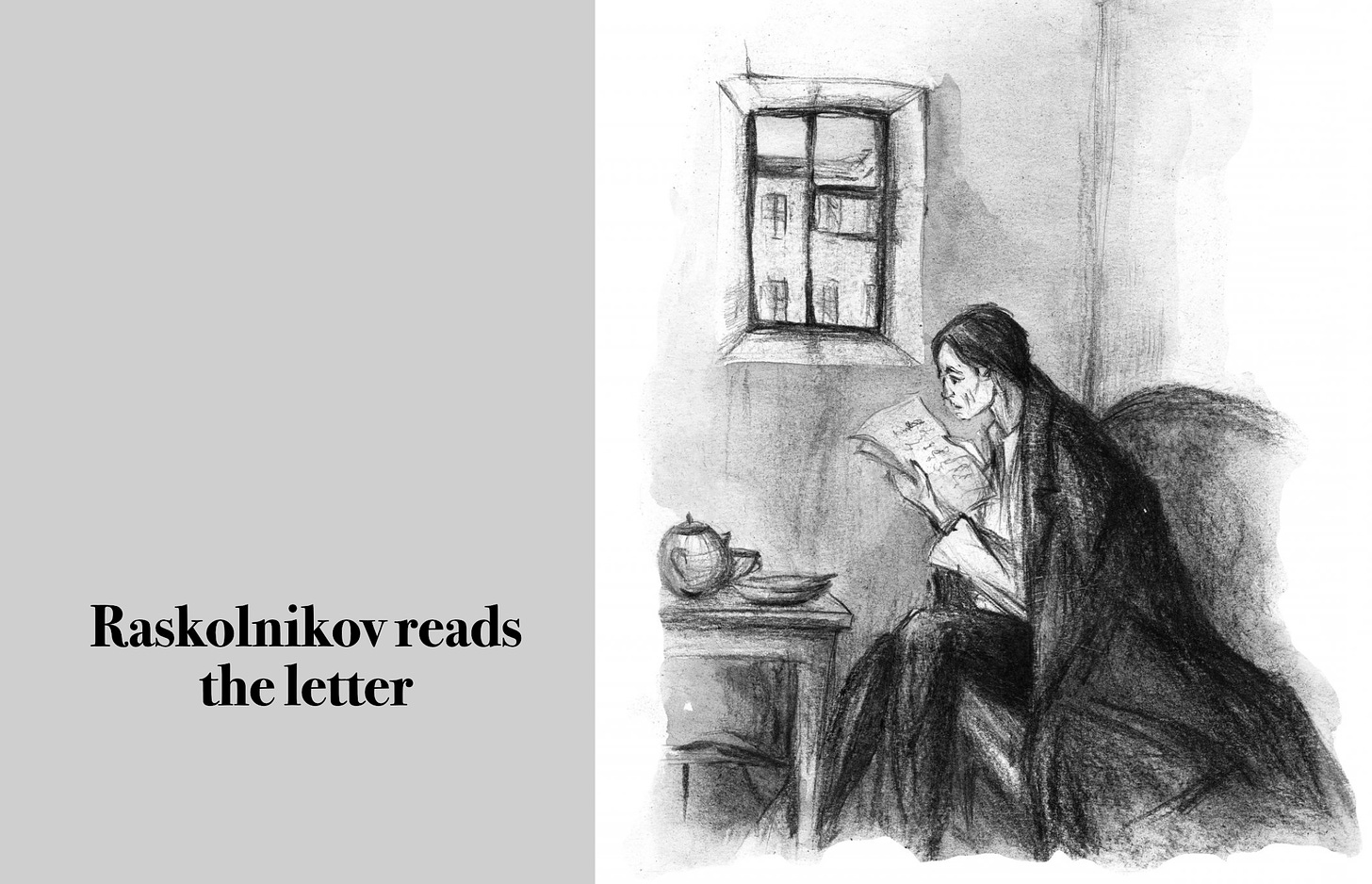
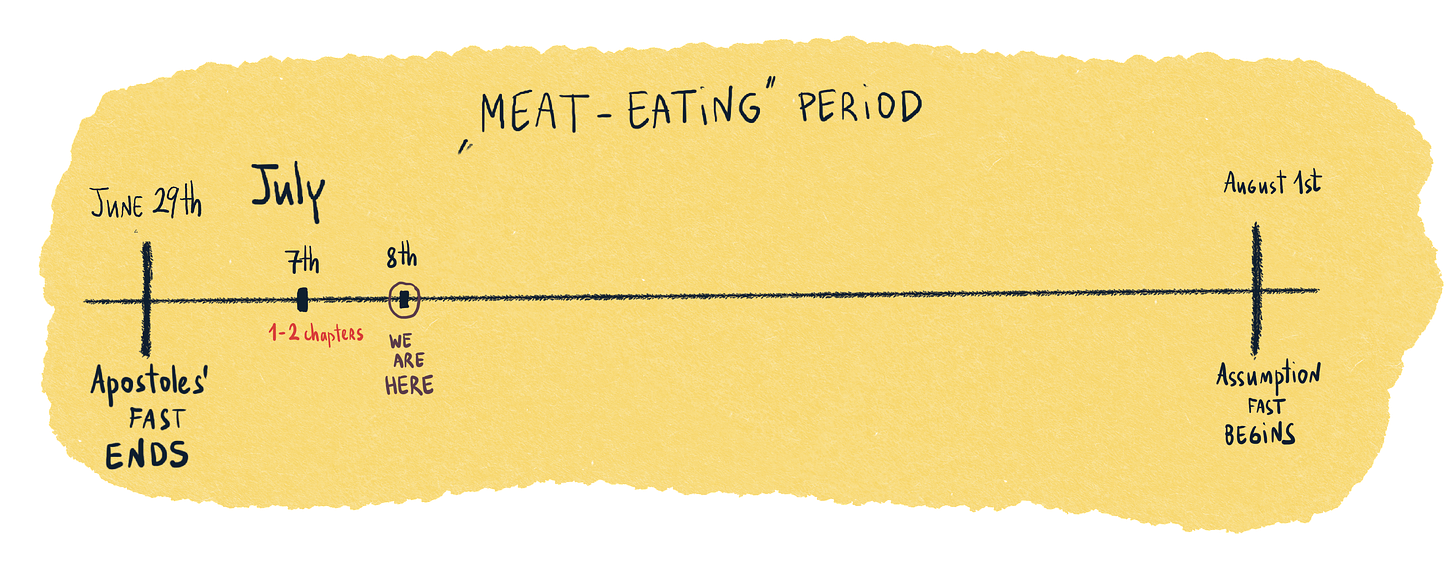
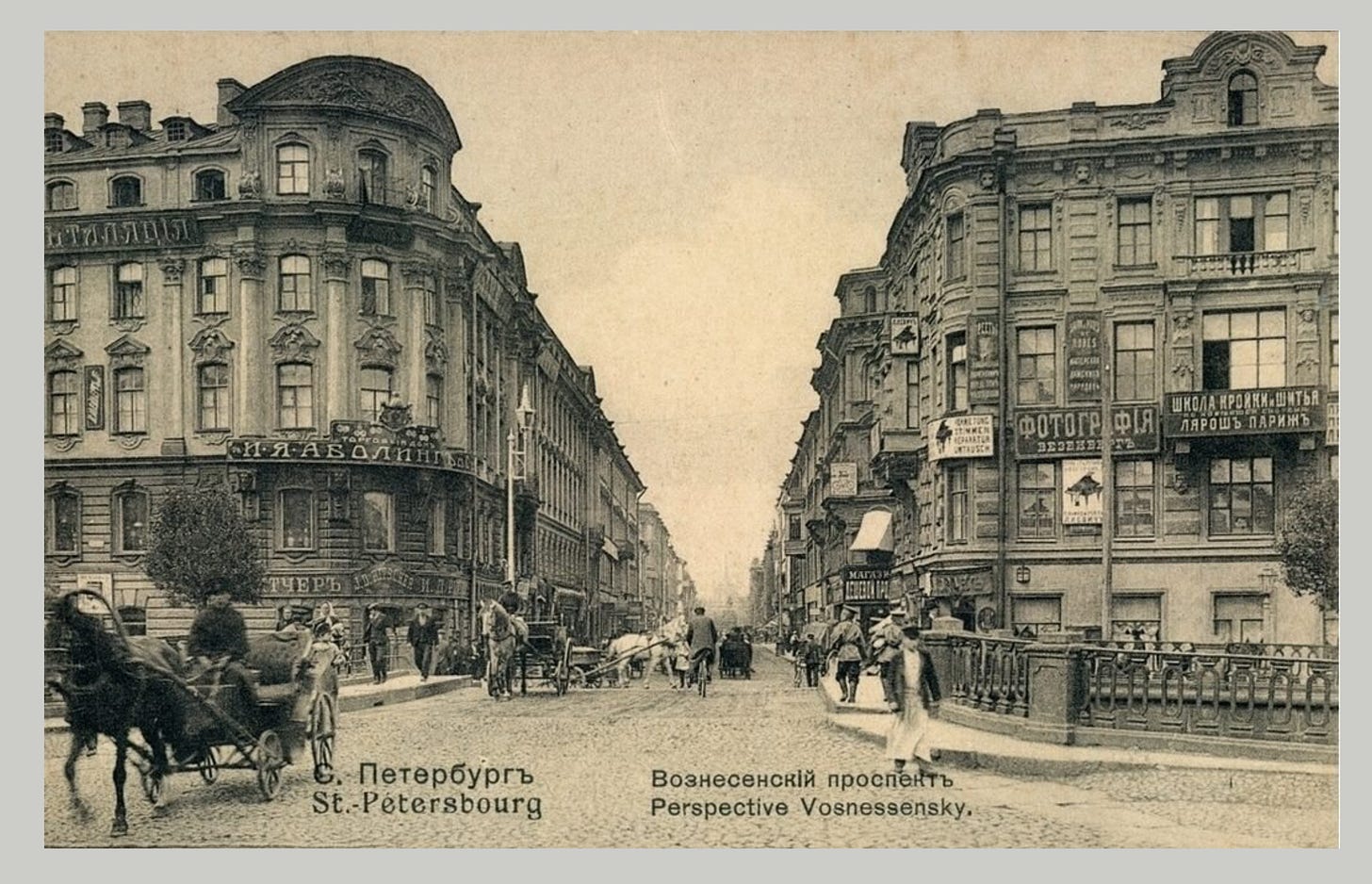

Dana, the current reads of W&P and C&P are my first true studies of Russian literature, although I’ve read a lot of both authors’ shorter works. Every bit information you provide on Russian language is gold! I’m enjoying your articles every bit as much as I am the story. (I’m tempted to say “more,” but I’m afraid that may be heresy.) I’m starting a notebook just to collect all the information you’re providing! Thank you for all the time you’re taking to put this together for us.
And do you have plans for all your artwork?!?! It needs to be published!!
I found his mother's letter fascinating. She has SO much to say - she makes a lot of assumptions about Dunya's fiance and what he will or won't do for the family (employ Rodion, invite the mother to live with them after the marriage) and places all of her hope on Rodion's support (after reminding him of all the support she and Dunya have given him so far). I wonder if Rodion feels stifled by his mother's letter? I assume it pushes him to crime, given the burden of support placed on him and the reminder that he hasn't contributed to the family yet.